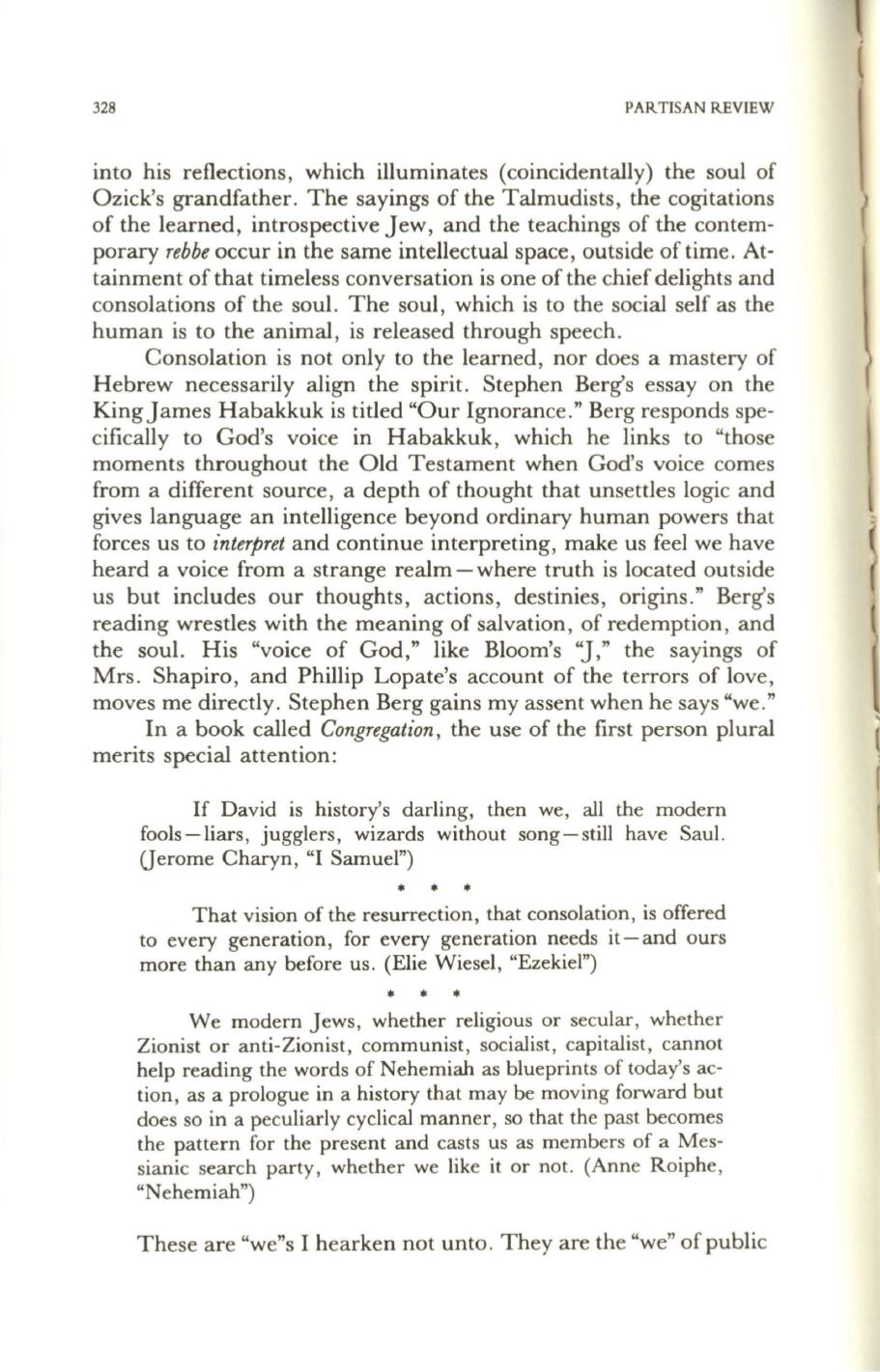
328
PARTISAN REVIEW
into his reflections, which illuminates (coincidentally) the soul of
Ozick's grandfather. The sayings of the Talmudists, the cogitations
of the learned, introspective Jew, and the teachings of the contem–
porary
rebbe
occur in the same intellectual space, outside of time. At–
tainment of that timeless conversation is one of the chief delights and
consolations of the soul. The soul, which is to the social self as the
human is to the animal, is released through speech.
Consolation is not only to the learned, nor does a mastery of
Hebrew necessarily align the spirit. Stephen Berg's essay on the
King James Habakkuk is titled "Our Ignorance." Berg responds spe–
cifically to God's voice in Habakkuk, which he links to "those
moments throughout the Old Testament when God's voice comes
from a different source, a depth of thought that unsettles logic and
gives language an intelligence beyond ordinary human powers that
forces us to
interpret
and continue interpreting, make us feel we have
heard a voice from a strange realm-where truth is located outside
us but includes our thoughts, actions, destinies, origins." Berg's
reading wrestles with the meaning of salvation, of redemption, and
the soul. His "voice of God," like Bloom's "J ," the sayings of
Mrs. Shapiro, and Phillip Lopate's account of the terrors of love,
moves me directly. Stephen Berg gains my assent when he says "we."
In a book called
Congregation,
the use of the first person plural
merits special attention:
If
David is history's darling, then we, all the modern
fools-liars, jugglers, wizards without song-still have Saul.
Gerome Charyn, "I Samuel")
•
That vision of the resurrection, that consolation, is offered
to every generation, for every generation needs it-and ours
more than any before us. (Elie Wiesel, "Ezekiel")
We modern Jews, whether religious or secular, whether
Zionist or anti-Zionist, communist, socialist, capitalist, cannot
help reading the words of Nehemiah as blueprints of today's ac–
tion, as a prologue in a history that may be moving forward but
does so in a peculiarly cyclical manner, so that the past becomes
the pattern for the present and casts us as members of a Mes–
sianic search party, whether we like it or not. (Anne Roiphe ,
"Nehemiah")
These are "we"s I hearken not unto . They are the "we" of public
(
(


